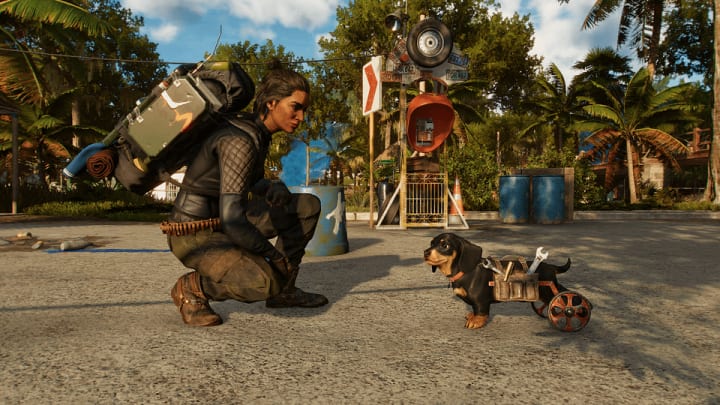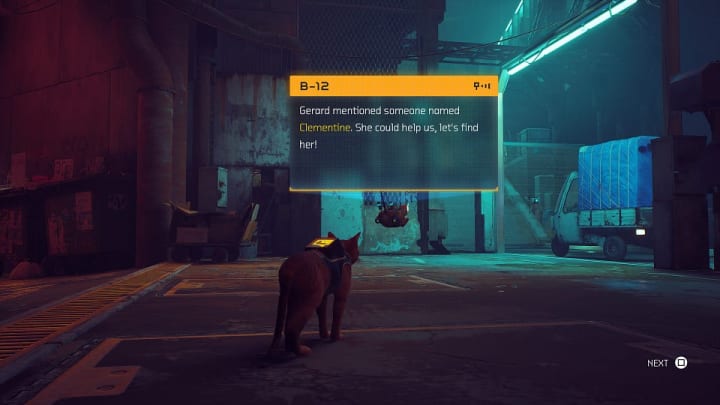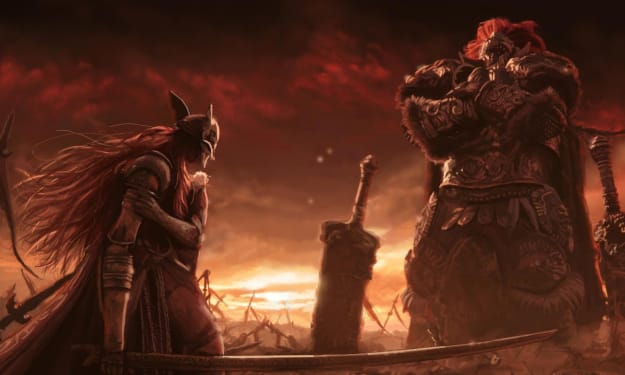Are Single-Player Games Dead?
The decline of narrative-driven video games

Video games have long been a creative medium that utilizes interactive storytelling. Throughout decades narrative-driven video games have been celebrated for their immersive worlds, complex characters, and engaging plots that have captivated players and gained critical acclaim.
However, there has been a recent and very noticeable decline narrative-focused video games. So in this article, we'll explore the factors contributing to this decline and explore the potential consequences it might have for the future of gaming.
Proof Of A Decline?
One of the biggest noticeable signs to this decline of narrative-driven video games are the overall releases of titles. Summer Game Fest, a recently new video game event that does live stream releases, just announced hundreds of new video games and additional DLC from both AAA and indie studios. Out of everything that got announced, there are only a small handful of single-player and narrative-focused video games.
While this can be classified as a coincidental trend, but more and more video game studios are leaning towards releasing multiplayer focused titles that offer microtransactions and seasonal content. This is likely due to the immense popularity of battle royale games such as Fortnite and Apex Legends. In fact, just comparing numerous 'best narrative video games of 2022' lists on multiple websites shows us that there aren't any that many high-quality narrative-focused video games being released in general and the number is slowly declining. But why is that?
Shifting Industry Priorities
One of the most significant factors behind the decline of narrative-driven video games is the shifting priorities within the gaming industry. As the medium continues to grow in popularity, developers are faced with increasing financial pressures and demands for larger profit margins.

The increasing emphasis on gameplay mechanics and online multiplayer experiences force publishers and developers to prioritize games with strong competitive or cooperative gameplay elements. As a result, resources that were once dedicated to crafting intricate narratives are now being diverted towards refining gameplay mechanics, balancing multiplayer modes, and maintaining live service models.

GTA Online and Destiny 2 are clear examples of this as Rockstar Games is continually making multiplayer content for a game that is literally ten years old and Bungie has been more focused on fixing, refining, and delivering revamped gameplay rather than delivering new gameplay with an intricate narrative that the fans have been dying for.
Rising Development Costs
As video games developers are prioritizing gameplay over story, the development of narrative-driven video games are not getting substantial investments in writing, voice acting, and motion capture. With the rising costs associated with game production, developers face the challenge of allocating limited resources effectively, but they inadvertently opt for the safest options during production.

As a result, the industry developed an overreliance on established franchises and sequels that has contributed to the decline of narrative-driven video games. As big-budget sequels often focus on expanding the gameplay mechanics and world-building of their predecessors, they leave less room for innovative storytelling.

This tendency toward safe bets stifles the developer's creativity, and leads to a writers room filled with uninspiring narratives and predictable story arcs, which fails to captivate players seeking fresh and immersive experiences. Series such as Borderlands, Assassins Creed, and Far Cry have all unfortunately fell into this narrative rut and struggle to get out of it despite their best efforts to push the envelope and develop something new and different.
Lack Of Innovation
Another factor contributing to the decline is a perceived lack of innovation within the single-player genre. There have been notable exceptions within the genre such as games like Stray, where it tells an emotionally powerful narrative about a cat and a robot, and The Quarry, that featured a large ensemble cast in an interactive horror setting. However, there are some narrative-driven games that have just fallen into predictable storytelling patterns.

Games like Bayonetta 3 and Resident Evil: Village have fallen into a storytelling pattern that often relies on clichéd tropes and practically fails at immersing players in a grippingly fresh narrative with emotional stakes. This stagnation has led to players becoming fatigued with mediocre storytelling and developed a diminished interest in the single-player genre.
The Onset Bugs
In addition to the aforementioned factors, arguably one of the biggest challenges that affect narrative-driven video games the most are bugs and glitches. While all games are susceptible to technical issues on launch, narrative-driven games rely heavily on delivering an immersive experience to maintain the player's engagement.
Unfortunately, the complexity of trying to seamlessly combine intricate narratives with fun gameplay can lead to an increased likelihood of bugs and glitches, which can disrupt the flow of the story and hinder the player's immersion. The impact of these issues is felt more harshly in narrative-driven single-player games, as the player's connection to the story and characters can be significantly compromised when faced with immersion-breaking bugs or narrative inconsistencies.

Cyberpunk 2077 was one of the biggest victim to this as the game suffered a disastrous launch and failed to meet expectations for what was anticipated to be the biggest release of 2020. From performance issues to hundreds of game breaking glitches, these technical issues drastically altered people's impression of the game and the single-player genre overall.
Despite implementing dozens of technical updates that improved graphics and gameplay, people had zero hype in Cyberpunk 2077. That was until the release of the anime prequel, Cyberpunk: Edgerunners which drew interest back into the game and the updates were finally able to deliver a fun and promising single-player experience to gamers all around.
Consequences Of The Decline
With the decline of narrative-driven video games carries several consequences for both the gaming industry and its audience. Firstly, players who appreciate deep storytelling and immersive narratives may feel alienated or dissatisfied with current offerings. This could lead to a significant decline in player engagement and a potential loss of long-term fans for game developers.

Additionally, the diminishing focus on single-player games may result in a lack of diverse and thought-provoking experiences within the medium. As engaging narratives have the power to tackle complex themes, evoke strong emotions, and foster empathy, people who have experienced quality narrative-driven games like Bioshock, The Last of Us, and Mass Effect will want to continue playing immersive story driven content. Without a continued emphasis on storytelling, video games risk losing their potential as a powerful art form capable of challenging societal norms and offering unique perspectives.
Are Single-Player Games Dead?
The decline of narrative-driven video games can be attributed to a number of factors. However, while the gaming industry continues to evolve, it is essential for them to strike a balance between profitability and artistic expression.

Considering the industry is currently in a state where gameplay supersedes narrative, there is eventually going to be a demand for powerful narrative-focused games and developers would have to properly take account for this demand. So it is unlikely that single-player games are going to go extinct anytime soon, but its decline alone reveals a lot about the state of the industry and we as an audience can only hope things will get better.
What do you think? Are narrative-driven games dead or are they going to make a comeback once standards get better? If you liked what you read, be sure to follow for more related content!
About the Creator
Jay Kobayashi
A starving writer from LA who aspires to be plagiarized one day. I like to write about academic pieces that identifies philosophy and psychology in pop culture, and sometimes random fun pieces that interests me or the algorithm!






Comments
There are no comments for this story
Be the first to respond and start the conversation.